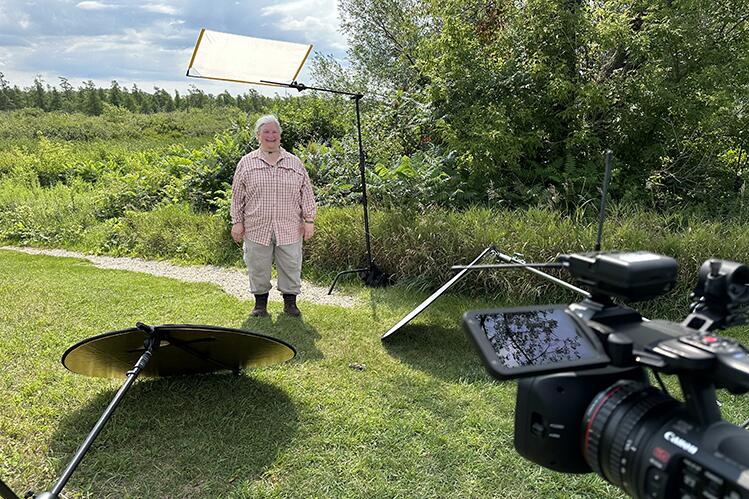ACES debuts five online graduate certificates: Upskill in agribusiness, conservation, and nutrition

The College of Agricultural, Consumer and Environmental Sciences at the University of Illinois Urbana-Champaign has launched five new online graduate certificate programs designed to equip students with cutting-edge knowledge and skills in key areas such as sustainable food production economics, alternative investments, wetland conservation, human nutrition and policy, and dairy nutrition.
"We are proud to offer these certificates as a means for adult learners to upskill to apply for promotions or pursue a career change — we are ready to equip online students across the globe with the knowledge and skills to prepare for new career opportunities or excel in their current roles,” said Anna Ball, associate dean of academic programs.
These graduate certificates are open to anyone with a bachelor’s degree and can be completed fully online through the innovative learning platforms Coursera and Canvas. Each of these graduate certificates can be stacked toward a master’s degree in a related field.
The certificate programs require the completion of 12 credits, encompassing three courses that blend asynchronous and synchronous learning components. Students will engage with pre-recorded lectures, panel discussions, and interactive exercises, offering flexibility and high engagement.
-
The Agribusiness and Sustainable Food Production Economics Certificate equips learners with a comprehensive understanding of the economic principles and practices that influence the global agricultural supply chain in both developed and developing countries, including economic, social, and cultural factors. This program is ideal for professionals looking to enhance their expertise in the dynamic field of agribusiness economics.
-
The Land, Agriculture, and Alternative Investing Certificate ensures an in-depth understanding of alternative investment types, financial planning, and regulatory frameworks. This program is designed for professionals seeking to enhance their expertise in diversifying investments, mitigating risk, and employing essential tax strategies.
-
The Wetland Science and Conservation Certificate offers learners the skills to create effective restoration plans, apply ecosystem stewardship concepts, and utilize technological tools for conservation. This program is designed for conservationists, regulators, and educators to gain insights into the role of regulations, international agreements, and stakeholder involvement in global wetland conservation.
-
The Food Regulations, Nutrition Policy, and Personalized Nutrition Certificate focuses on personalized nutrition trends and prepares students with a comprehensive understanding of the regulatory landscape, nutrition policies, and individualized dietary responses. This program is designed for professionals aiming to deepen their expertise in food regulations and nutrition science.
-
The Dairy Nutrition for Udder Success Certificate explores dairy nutrition, focusing on feeds, cow health, and milk quality through a unique blend of theoretical knowledge, hands-on training, and cutting-edge technology applications. This program is particularly beneficial for veterinarians, livestock nutritionists, animal scientists, agricultural educators, dairy production specialists, and farm managers.
ACES Online programs stand out because of the personal connection students have with their professors, said Debra Korte, assistant dean for learning innovation.
“Each course offers weekly office hours and live course sessions, where students can interact directly with professors and fellow students to discuss course content and engage in conversations around current issues, fostering a supportive learning community,” Korte said. “Additionally, students can engage with self-paced content at their convenience. If they are unable to attend a live session, they have the flexibility to watch the recorded session, ensuring they never miss out on valuable learning opportunities.”
For more information on these certificate programs and how to apply, visit the ACES Online website at aces.illinois.edu/online.